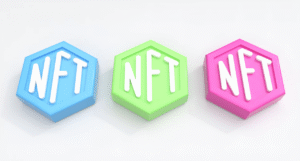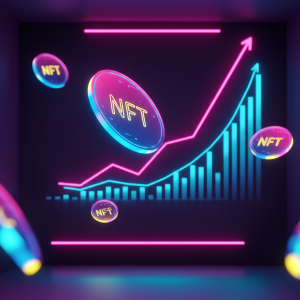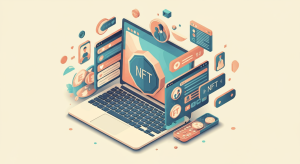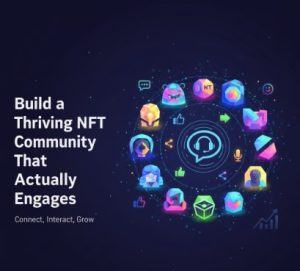Metaverse Real Estate NFTs: Investment Opportunities

The concept of owning digital land once belonged to science fiction, yet today metaverse real estate represents one of the fastest-growing segments of the NFT market. As major corporations and individual investors alike stake their claims across virtual worlds, understanding the nuances of this emerging asset class becomes increasingly important for forward-thinking investors.
The Digital Land Rush
Virtual real estate markets have evolved significantly since their early iterations. What began as novelty purchases have transformed into strategic acquisitions with genuine utility considerations. Major brands now view metaverse presence as essential extensions of their physical operations, driving demand for prime digital locations.
The metaverse real estate market reached approximately $501 million in transactions during 2023, demonstrating both significant capital flows and growing institutional interest. While this represents a fraction of physical real estate markets, the growth trajectory suggests continued expansion as virtual worlds gain mainstream adoption.
Unlike traditional real estate bound by physical constraints, metaverse properties exist across numerous platforms with varying characteristics. Each virtual world operates under unique economic models, scarcity mechanics, and utility propositions. This fragmentation creates both opportunities and challenges for investors navigating the landscape.
Value Drivers in Virtual Landscapes
Understanding value creation in metaverse real estate requires examining factors that differ significantly from physical property markets. Location remains important but operates under different principles. Proximity to high-traffic areas, popular attractions, or celebrity-owned parcels often drives premium valuations similar to physical real estate, yet these patterns emerge based on digital foot traffic rather than physical convenience.
The flexibility of development represents another crucial value driver. Unlike physical construction, virtual buildings can transform instantly, host unlimited visitors simultaneously, and implement programmable features impossible in physical spaces. This adaptability allows property owners to quickly respond to market trends or user preferences.
Platform selection perhaps most significantly impacts investment outcomes. Properties within established metaverses like Decentraland operate under different economic models than emerging platforms. Established worlds offer greater liquidity and proven user bases but often at premium entry prices. Emerging platforms may provide greater appreciation potential coupled with increased platform risk.
For detailed analysis of platform-specific investment considerations, our metaverse platform comparison guide offers in-depth evaluations of governance models, technical capabilities, and user growth metrics across major virtual worlds.
Revenue Generation Strategies
Modern metaverse real estate transcends simple speculation through multiple revenue generation approaches. Rental markets have emerged where property owners lease space to brands, creators, or event organizers seeking temporary presence without substantial capital investment. These arrangements typically operate through smart contracts that automate payment collection and access control.
Advertising represents another established revenue stream, with high-traffic locations commanding premium rates for virtual billboards or brand installations. These advertising opportunities often benefit from captive audience attention in ways physical advertising struggles to achieve.
Experience creation perhaps shows the most promise for sustainable returns. Properties hosting engaging experiences, from virtual concerts to interactive art installations, generate value through attendance fees, in-experience purchases, or brand sponsorships. The most successful properties typically focus on creating memorable experiences rather than passive ownership.
Development Considerations
Developing metaverse properties requires balancing aesthetic appeal, functional utility, and technical performance. While visually stunning builds attract initial attention, retention typically depends on functional utility and performance optimization. Properties causing rendering issues or navigation difficulties quickly lose visitors regardless of visual appeal.
Professional development teams have emerged specializing in metaverse architecture, interactive design, and performance optimization. These specialized skills command premium fees but often deliver superior investment returns through enhanced user experiences and technical reliability.
Open-source development assets and interoperability standards are improving rapidly, potentially reducing future development costs while increasing property versatility across platforms. This evolution may eventually enable properties to exist simultaneously across multiple metaverses rather than remaining platform-locked assets.
Risk Assessment Framework
Prudent investors approach metaverse real estate with comprehensive risk assessment frameworks. Platform dependency represents perhaps the greatest risk factor, as property values remain inextricably linked to platform success. A metaverse platform’s decline inevitably impacts all properties within its ecosystem regardless of individual property quality.
According to data from Virtual Real Estate Analysis, approximately 64% of a metaverse property’s value correlates directly with overall platform activity metrics rather than property-specific features. This platform dependency exceeds similar factors in physical real estate, where neighborhood conditions typically impact value to lesser degrees.
Regulatory uncertainty presents another significant risk factor. As regulatory frameworks evolve around digital assets, metaverse properties may face classification challenges affecting transferability, taxation, or legal protections. Jurisdictional questions remain particularly complex for assets existing purely in digital form.
Technical obsolescence risks also warrant consideration. As metaverse technologies advance rapidly, properties developed under current technological constraints may require significant upgrades to remain competitive or even functional within evolving platforms.
Investment Strategies and Market Entry
Various investment strategies have emerged catering to different risk profiles and capital allocations. Index-based approaches involve acquiring diversified holdings across multiple platforms to mitigate platform-specific risks. This strategy sacrifices potential outsized returns from concentrated platform bets in favor of broader exposure to the overall metaverse real estate sector.
Development-focused strategies emphasize acquiring undeveloped or underdeveloped parcels, then creating value through custom builds or experience design. This approach typically requires greater technical expertise but potentially generates higher returns through value-add activities rather than pure appreciation.
Yield-focused investors prioritize immediate revenue generation through rental arrangements, advertising placements, or experience monetization. This strategy often attracts investors familiar with traditional real estate income principles seeking to apply similar models in digital contexts.
Market entry timing significantly impacts investment outcomes in this volatile sector. During platform hype cycles, acquisition costs often reach unsustainable levels disconnected from realistic utility valuations. Counter-cyclical purchasing during market corrections has historically provided better entry points for long-term investors, though requires conviction during periods of negative sentiment.
Portfolio Integration Considerations
For diversified investors, determining appropriate metaverse real estate allocation within broader portfolios remains challenging. The asset class demonstrates correlation patterns with both cryptocurrency markets and technology equities rather than traditional real estate, limiting its effectiveness as a traditional real estate alternative.
Most financial advisors currently recommend limiting metaverse real estate exposure to a small percentage of alternative asset allocations rather than core portfolio holdings. This cautious approach acknowledges both significant upside potential and substantial risk factors during these early market stages.
For investors seeking broader metaverse exposure beyond direct property ownership, publicly traded companies developing metaverse infrastructure or services may provide more liquid investment vehicles with reduced platform-specific risks.
Future Evolution Pathways
Several technological and market trends suggest potential evolution pathways for metaverse real estate. Interoperability initiatives may eventually enable assets to exist across multiple platforms simultaneously, potentially reducing platform dependency risks while increasing total addressable markets for property utility.
Artificial intelligence integration shows particular promise for property management and visitor engagement. AI-powered NPCs (non-player characters) already enhance visitor experiences in limited implementations, with future applications potentially including personalized guest interactions, dynamic space reconfiguration, and automated maintenance functions.
Physical-digital hybrid models represent another emerging trend, where physical locations maintain synchronized digital twins in metaverse environments. These implementations enable physical businesses to extend their reach while creating novel customer experiences spanning both realms.
Conclusion
Metaverse real estate represents a frontier investment category combining elements of traditional property ownership with digital asset characteristics. While speculative elements certainly exist within current market valuations, utility-focused properties delivering genuine user value increasingly demonstrate sustainable economics beyond pure scarcity propositions.
Successful investors in this space typically develop multidisciplinary expertise spanning real estate fundamentals, digital asset mechanics, and platform-specific knowledge. This combination allows for nuanced valuation approaches that identify opportunities others might overlook while avoiding common pitfalls affecting newer market participants.
As metaverse adoption continues expanding beyond early adopters into mainstream usage, properties delivering functional utility, engaging experiences, and technical reliability will likely outperform those relying solely on scarcity narratives or speculative appreciation. The most successful investors will focus on value creation rather than simply value extraction in this evolving digital frontier.








